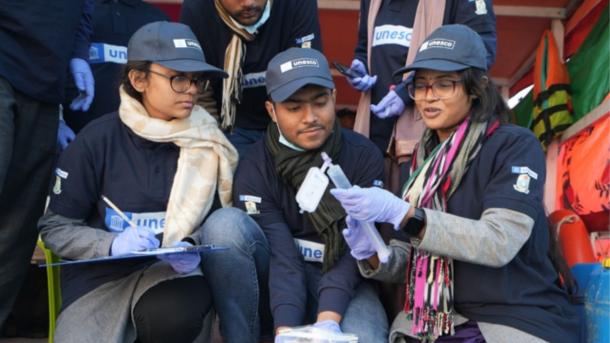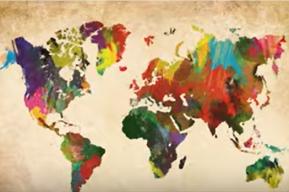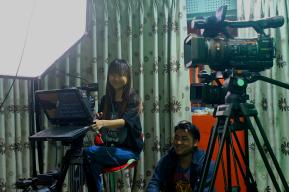Event
UNESCO highlights initiatives to eradicate poverty and accelerate gender equality at CSW68

The sixty-eight session of the Commission on the Status of Women (CSW68) will take place from 11 to 22 March 2024, bringing together representatives from Member States, UN entities, and non-governmental organizations worldwide to explore strategic bases aimed at advancing gender equality, tackling poverty, and strengthening institutions through gender-responsive financing and budgeting.
High-level side event on 19 March
From MDGs to SDGs: A Review of a Decade of implementation of commitments on women and girls’ education in Africa - Accelerating progress towards Agenda 2030 and Agenda 2063
See the agenda and list of speakers
To contribute to the larger discourse at CSW 68, UNESCO will host on the 13th of March the side event Eliminating poverty: Structural interventions through education, culture and sciences. UNESCO’s partners and beneficiaries will delve into interconnected areas of UNESCO's action to advance gender equality in and through education; empower women in science for environmental action; reshape social norms and support the economic empowerment of women through culture and heritage; and bridge the digital gender divide. These are unanimously recognized for decades as crucial areas of intervention to accelerate the achieving of gender equality, putting women and girls at the forefront as problem-solvers to chart a clear path forward for the benefit of all of society.
Experts, policymakers, civil society stakeholders and representatives of the private sector involved in UNESCO’s flagship programs and initiatives will share experiences and best practices for:
Financing gender transformative education, by exploring the intersection of gender-transformative education and funding mechanisms and experiences in gender-responsive budgeting.
Mobilizing women scientists and leaders to address climate emergency, by exchanging best practices for harnessing women's scientific and local knowledge to tackle environmental challenges.
Combating poverty and empowering indigenous women through living heritage, to promote diverse narratives and challenges stereotypes.
Enhancing women’s voices and leadership in the digital public sphere, by exploring threats as well as positive advancements and solutions derived from generative AI developments.
REPLAY
Watch here.
UNESCO will play a pivotal role in the overall discussions of CSW68, emphasizing intersectoral interventions and experiences across its mandate to foster gender equality through education, culture, communication and sciences, by intervening in the following dialogues and side events on:
Closing the gender gap in education: How to address long-term barriers and emerging challenges in a world of complex crises? (12 March, 13:00- 14:45 EST)
Afghan Women Journalists (12 March, 12:00 -14:00 EST)
Leveraging Education in emergencies for Climate Action (14 March, 8:15 – 9:45 EST)
Driving accountability and leadership: The Global Platform for Gender Equality in and through Education (15 March, 9:00 – 10:30 EST)
Empowering Women in the Digital Age: WSIS Commitment to Gender Inclusion (19 March, 13:15 – 14:30 EST)
Towards agenda 2030: Progress on Women and Girls’ Education in Africa in the last Decade (19 March, 15:00 – 17:00 EST)
Launching the first global network of women of film and audiovisual media (21 March, 6:30 – 7:45 EST)





